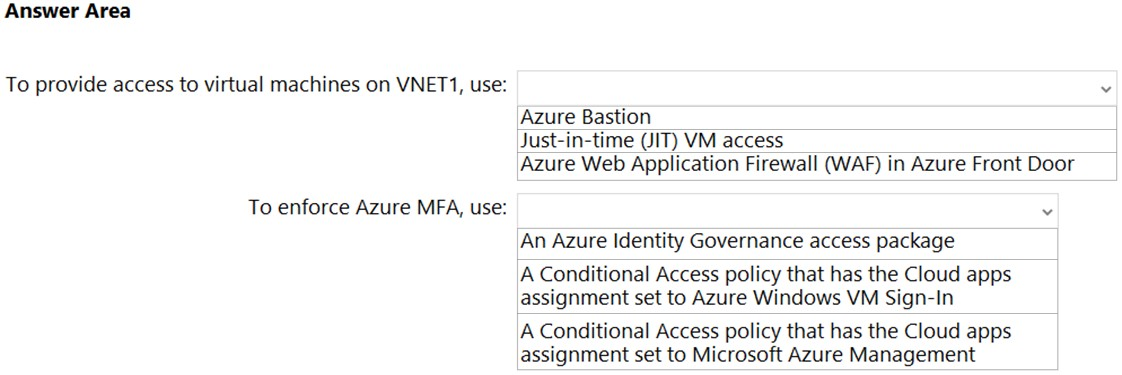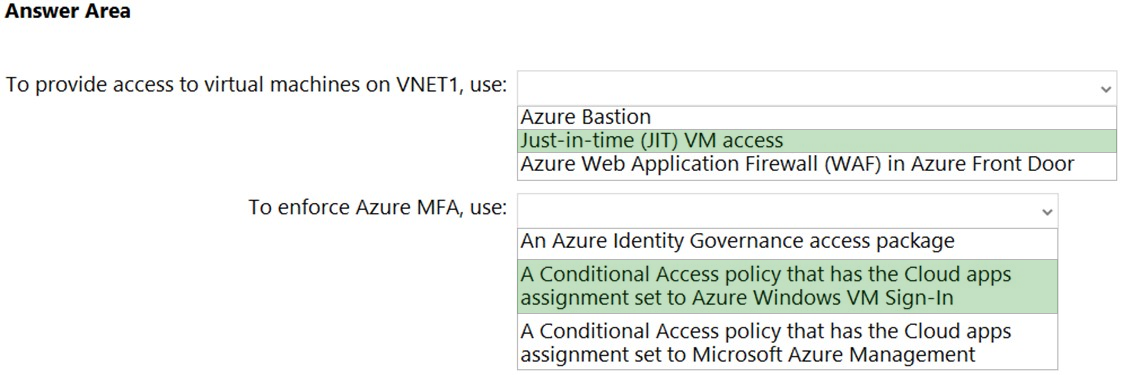

HOTSPOT -
You have an Azure subscription that contains a virtual network named VNET1 and 10 virtual machines. The virtual machines are connected to VNET1.
You need to design a solution to manage the virtual machines from the internet. The solution must meet the following requirements:
✑ Incoming connections to the virtual machines must be authenticated by using Azure Multi-Factor Authentication (MFA) before network connectivity is allowed.
✑ Incoming connections must use TLS and connect to TCP port 443.
✑ The solution must support RDP and SSH.
What should you include in the solution? To answer, select the appropriate options in the answer area.
NOTE: Each correct selection is worth one point.
Hot Area:

Gowind
Highly Voted 2 years, 7 months agoSinae
4 months, 3 weeks agoShri0024
3 months, 3 weeks agoabxc
2 years, 2 months agoOdy
1 year agoTJ001
1 year, 2 months agojj22222
2 years, 1 month agoalxm8
Highly Voted 2 years, 4 months agodarthfodio
2 years, 3 months agomaxustermann
1 year, 7 months agoNicknamefordiscussions69
Most Recent 5 months ago[Removed]
5 months, 1 week agoMeisAdriano
5 months, 4 weeks agoMeisAdriano
5 months, 4 weeks agoTeerawee
7 months, 2 weeks ago23169fd
10 months ago23169fd
10 months agovarinder82
1 year agoDeinosK
1 year, 4 months agoBShelat
1 year, 4 months agoBShelat
1 year, 4 months agoc_h_r_i_s_
6 months, 1 week agorajeshrj1981
1 year, 5 months agoACM13
1 year, 5 months agofodocel235
1 year, 5 months agoncseffai
1 year, 6 months agohusam421
1 year, 6 months agolearning93
1 year, 7 months agolearning93
1 year, 7 months agolearning93
1 year, 7 months agomaxustermann
1 year, 7 months ago